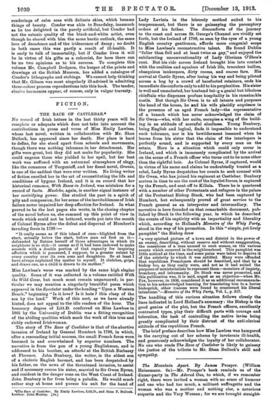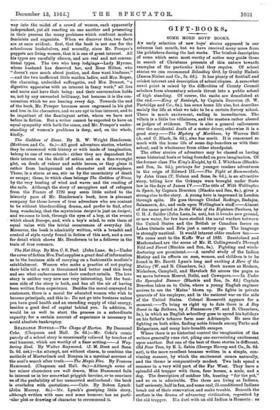The Mountain Apart. By James Prosper. (William Heinemann. 6s.)—Mr. Prosper's
book reminds us of the dinner-party in The Adored One, to which, if we remember right, there were invited a woman with no sense of humour and one who had too much, a militant suffragette and the woman who was a mother and nothing else, a notorious coquette and the Very Woman ; for we are brought straight• way into the midst of a crowd of women, each apparently independent, yet all reacting on one another and presenting in their persons the many problems which confront modern feminists and eugenists. When we discover this, two facts are at once evident: first, that the book is not one for the schoolroom bookshelves, and secondly, since Mr. Prosper's puppets are living women, that it is one of great interest. All his types are carefully chosen, and are real and not conven- tional types. The two who keep lodgings—Lady Myrone, whose husband has deserted her, and Rose Hilton, who " doesn't care much about justice, and does want kindness," —and the two inefficient little maiden ladies, and Mrs. Roper, the charming, undecided suffragette, and Mrs. Bunnet, "a digestive apparatus with an interest in fancy work," all live and move and have their being: and their conversation holds us, not by any unwonted brilliancy, but because it is the con- versation which we are hearing every day. Towards the end of the book, Mr. Prosper becomes more engrossed in his plot and less in his characters, and we are apt to lose interest, and to be impatient of the flamboyant artist, whom we have met before in fiction. But a writer cannot be expected to have an equal sympathy with both the sexes, and Mr. Prosper's under- standing of women's problems is deep, and, on the whole, kindly.



























































 Previous page
Previous page